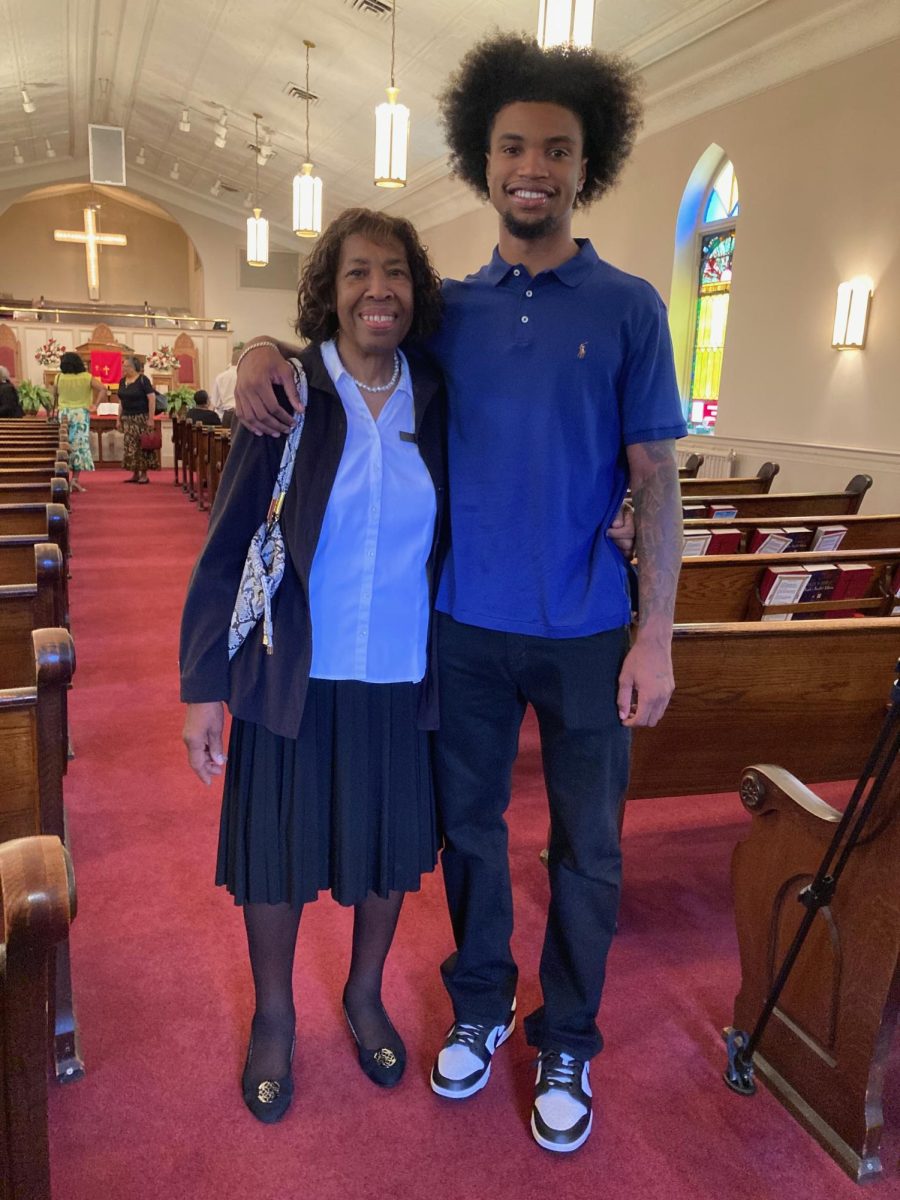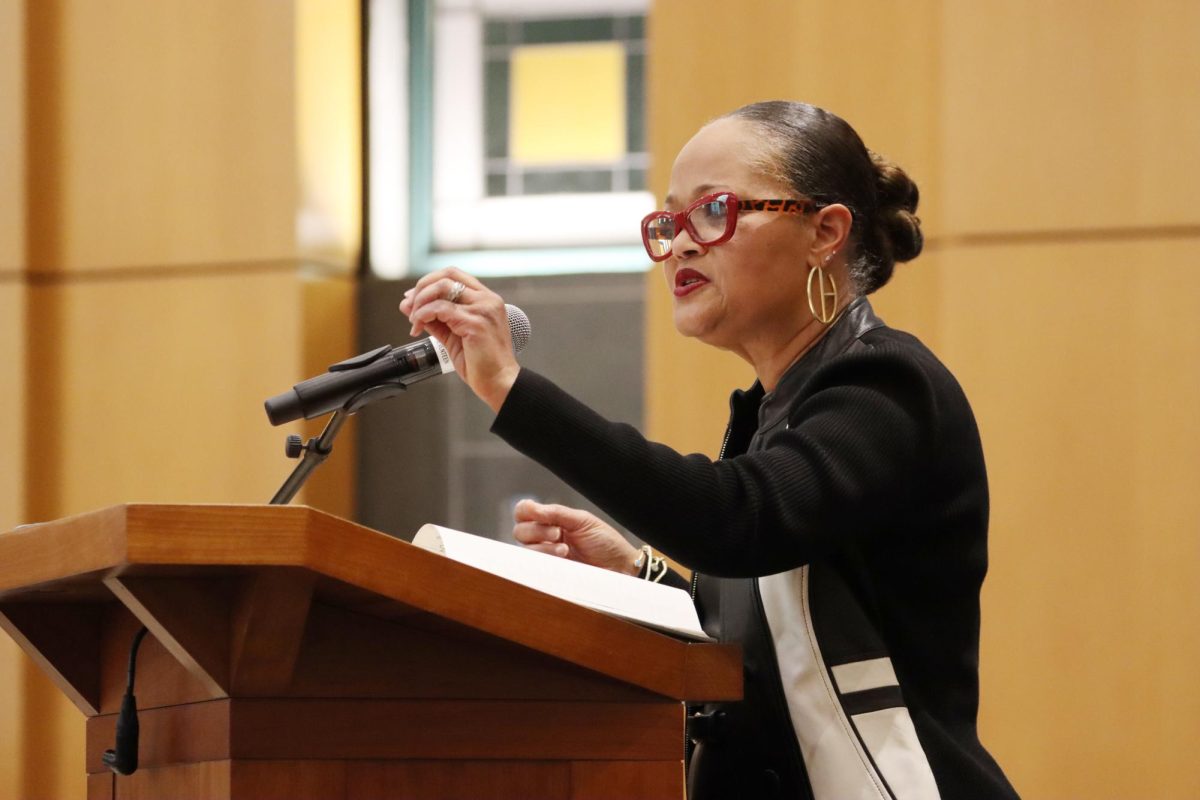On February 14, the U.S. Department of Education sent out a Dear Colleague Letter to higher education institutions. The letter, riddled with vague demands and buzzwords such as “toxically indoctrinated,” threatened to revoke federal aid to institutions that partake in “discriminatory practices,” such as Diversity, Equity, and Inclusion.
In an issue of the Student Dolphin Digest on Feb. 28, College President Linda LeMura addressed the Le Moyne community regarding the letter. LeMura expressed concern for students who depend upon federal student aid. She stated that in the near future, “Le Moyne will be faced with difficult and sometimes unpopular decisions. Please know that such decisions are not taken lightly, and that they involve considerable discussion and consultation,” and affirmed her commitment to the best interests of the students and the college.
Following the letter, members of the community spotted changes to the Le Moyne website. Mentions of the word “diversity” were changed to “belonging.” Links were removed, such as BIPOC Resources from the Health and Wellness page (before and after) and those to the office of Equity, Diversity, Inclusion, and Belonging (EDIB) (before and after of the home page). The Higher Education Opportunity Program (HEOP) and the African-American, Hispanic, Asian, Native American program (AHANA) page was renamed to “Academic Opportunity Programs,” and all mentions of AHANA, save from the email address, have been removed. Other program pages, such as the one for CSTEP, have had language removed related to race (before and after). Searching for the EDIB page itself and its subpages, such as the Bias Incident Reporting page, formerly returned a “Page Not Found” error. Trying to access the Bias Incident Reporting page through Campus Safety shows a blank page with only a title, a footer, and no page content.
The Department of Education released an FAQ, which utilized clearer language in explaining and expanding upon the vague policies surrounding DEI first explored in the Dear Colleague Letter. This FAQ was released on March 1, a day after the deadline of February 28 (14 days after the letter’s publication date). To many, this timeline of events feels like a blatant fear tactic to scare higher education institutions into acting impulsively rather than standing their ground.
Following this, the EDIB page was recently restored to the website. However, key features such as the Le Moyne College Oath of Diversity and Inclusion and the Onondaga Nation land acknowledgement have been removed. The link to the Bias Incident Reporting form still returns a “Page Not Found” error. As of the publication of this article, all above changes mentioned previously remain.
Le Moyne is not alone in making changes to their website. Institutions across the country, including the neighboring Syracuse University and fellow Jesuit institution Boston College, have changed language on their websites to comply with federal demands.
Another issue facing the Le Moyne community was brought to light on Feb. 24 by drag artist Aria Vee on Facebook. In her post, Vee referenced the cancellation of the annual drag show hosted by Le Moyne’s LGBTQ+ club, PRISM. PRISM itself has existed since 1994, first under the name of “People Against Homophobia,” and the drag show has been successfully held for several years. “This COLLEGE event was being planned for months and once the election came about it was radio silence. Just to find out it’s been cancelled to hold a ‘neutral stance’ and secure their funding,” Vee stated.
On March 3, PRISM released a statement via email to their club members on the cancellation, stating that the decision was made without their knowledge. Administration had reached out to them before the post was made to schedule a meeting, but the news broke before it could happen. The reason given to the E-Board by the administration for the cancellation was “the rampant threats from our Federal government to withhold funding and federal aid to schools that continue to have DEI policies, as well as the topic of drag being a heavy conversation starter within fellow catholic institutions,” as stated in the email.
These changes to the website and the cancellation of the drag show have understandably upset members of the Le Moyne community, as well as sparked discussion on whether or not this was the right thing to do as the college faces issues thrown at them by the current presidential administration. As a Jesuit institution, Le Moyne prides itself on its Jesuit values, such as Cura Personalis (care for the whole person), educating the whole person, and people for others (also referred to as “men and women for others”). The Le Moyne mission statement describes the college as “a diverse learning community that strives for academic excellence in the Catholic and Jesuit tradition” and seeks for its students to “promote a more just society.”
Many engaged in this discourse have made well-meaning arguments that the college has not abandoned its values despite these changes. While many disagree with the acts themselves, it can be argued that Le Moyne is acting in the best interests of the students. According to the National Center for Education Statistics, during the 2022-2023 school year, 38% of full-time degree-seeking undergraduate students at Le Moyne received an average of $6,484 in federal grants, and 73% received an average of $5,138 in federal student loans. Losing federal funding could be devastating. I agree in part with these ideas, as I would not be able to afford my education without it, and neither would many of my peers.
All of this being taken into consideration, the administration of Le Moyne College needs to prove to the students that they will stand by their values through their actions, not only their words. If the college is willing to change critical language on their website, remove pages, and cancel club events, how far are they willing to go to comply with federal demands? When the EDIB page was down, many were worried about the fate of the office. While the community at large is grateful to know that it is still allowed to exist, the fear that AHANA may be cut or changed due to its focus on supporting students of color, a point outlined in both the Dear Colleague Letter and FAQ as a “discriminatory” practice, is of great concern.
The lack of transparency and communication so far has angered the community at large, allowing rumors and fear to spread like wildfire. While Le Moyne needed to act quickly to protect their students, it was dangerous for them to completely remove student access from resources that are imperative to their wellbeing on campus such as the incident bias reporting page, which is still inaccessible.
Jesuits have had a long standing history of being advocates for social justice. In some cases, they have even partaken in civil disobedience. Fr. Daniel Berrigan, a Jesuit who formerly taught at Le Moyne, burned draft cards in protest of the Vietnam War, and many other Jesuits of the 21st century have faced arrest for partaking in nonviolent acts of protest.
“We know that we can remain true to our institutional mission and values and also follow all applicable laws and regulations,” LeMura stated in her address. For a college that loves to quote from Henry David Thoreau — “for a short while, I lived like a dolphin” — at present, we have been ignoring one of his key ideas. If the college’s administration must keep making difficult, unpopular decisions with the aim of protecting its students, Le Moyne at the very least shouldn’t go down without a fight.
Fellow Jesuit institution Marquette University has served as a great example of what to do in responding to the current federal policies. On Feb. 25, the American Council on Education responded to the Dear Colleague Letter, opposing it and demanding for it to be rescinded. Le Moyne is a member of the Association of Jesuit Colleges and Universities and the Association of Catholic Colleges and Universities, both of which signed the letter back to the DoE. Marquette reported on this in a section of their website dedicated to campus news and events. In their article, they affirmed their commitment to their values, openly communicated with their community, and provided a link to campus resources and guidance related to federal actions. Dean William Treanor of Georgetown Law also recently took a bold stance against Interim United States Attorney Edward Martin in favor of DEI at Georgetown University. These kinds of communication and advocacy is exactly what Le Moyne needs to employ going forward.
As the popular saying goes, “actions speak louder than words.” While the administration of Le Moyne seeks to best protect their students, there are instances where they may say one thing and do another, contradicting their values. It is our job, as the Le Moyne community, to hold them true to their word and help them prepare for the unpredictable and unprecedented future of higher education. They must not be fearful and impulsive in their actions to defend the college when faced with difficult choices. Preparing for any federal policies going forward is imperative in ensuring that they are not caught off guard again. It is in our best interests to band together and call upon our college to not be passive and opaque, but proactive and communicative.



